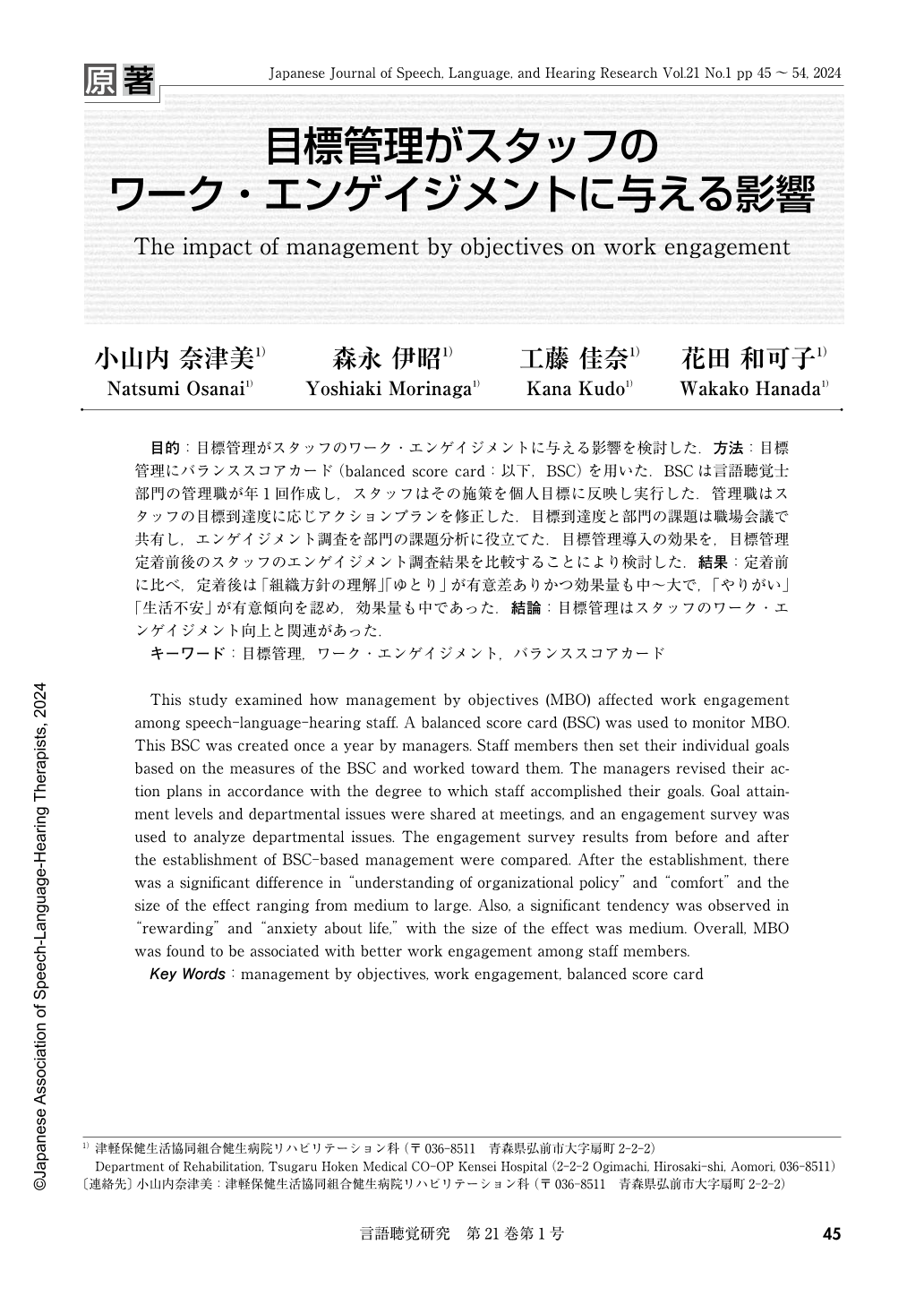Japanese
English
- 有料閲覧
- Abstract 文献概要
- 1ページ目 Look Inside
- 参考文献 Reference
目的:目標管理がスタッフのワーク・エンゲイジメントに与える影響を検討した.方法:目標管理にバランススコアカード(balanced score card:以下,BSC)を用いた.BSCは言語聴覚士部門の管理職が年1回作成し,スタッフはその施策を個人目標に反映し実行した.管理職はスタッフの目標到達度に応じアクションプランを修正した.目標到達度と部門の課題は職場会議で共有し,エンゲイジメント調査を部門の課題分析に役立てた.目標管理導入の効果を,目標管理定着前後のスタッフのエンゲイジメント調査結果を比較することにより検討した.結果:定着前に比べ,定着後は「組織方針の理解」「ゆとり」が有意差ありかつ効果量も中〜大で,「やりがい」「生活不安」が有意傾向を認め,効果量も中であった.結論:目標管理はスタッフのワーク・エンゲイジメント向上と関連があった.
This study examined how management by objectives (MBO) affected work engagement among speech-language-hearing staff. A balanced score card (BSC) was used to monitor MBO. This BSC was created once a year by managers. Staff members then set their individual goals based on the measures of the BSC and worked toward them. The managers revised their action plans in accordance with the degree to which staff accomplished their goals. Goal attainment levels and departmental issues were shared at meetings, and an engagement survey was used to analyze departmental issues. The engagement survey results from before and after the establishment of BSC-based management were compared. After the establishment, there was a significant difference in “understanding of organizational policy” and “comfort” and the size of the effect ranging from medium to large. Also, a significant tendency was observed in “rewarding” and “anxiety about life,” with the size of the effect was medium. Overall, MBO was found to be associated with better work engagement among staff members.

Copyright © 2024, Japanese Association of Speech-Language-Hearing Therapists. All rights reserved.


